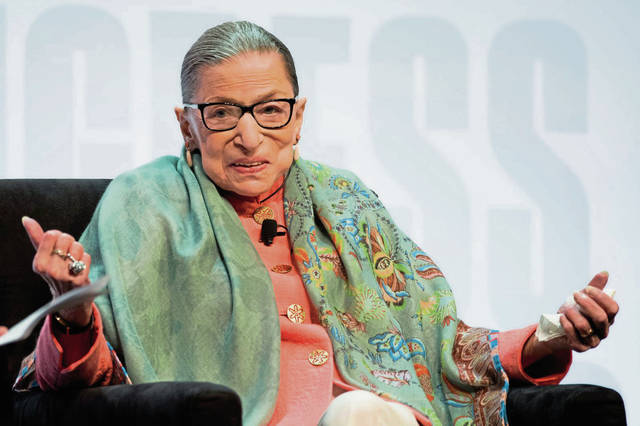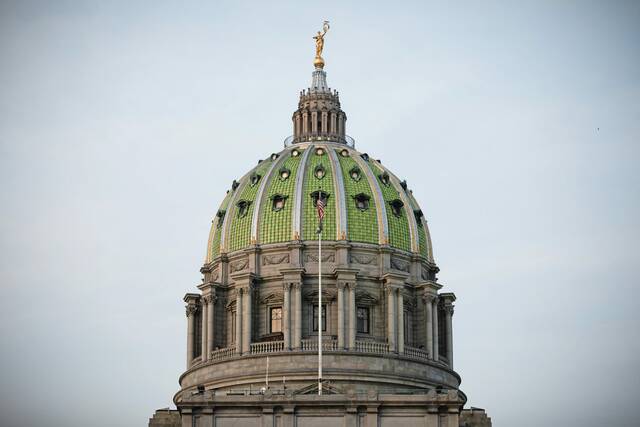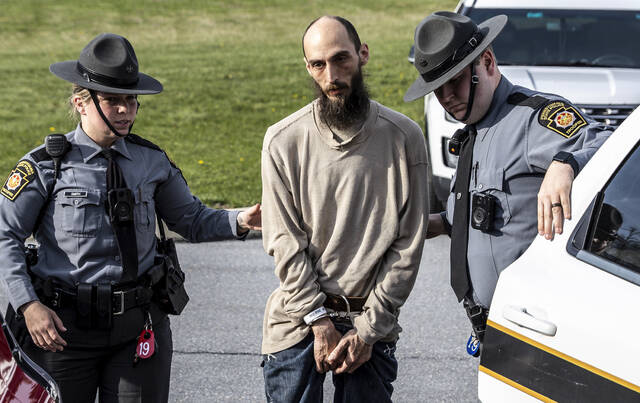Supreme Court Justice Ruth Bader Ginsburg made history as a lawyer, scoring courtroom victories for clients in sexual discrimination cases.
On Wednesday, the 87-year-old justice made history again — this time by participating in oral arguments in a pivotal hearing on insurance coverage for birth control from her room at Johns Hopkins Hospital. She was admitted Tuesday for treatment of a benign gall bladder condition.
Arguments in Trump v. Pennsylvania marked the beginning of the high court’s third day of long-distance hearings. All nine justices as well as lawyers for President Trump, the Little Sisters of the Poor and Pennsylvania Deputy Attorney General Michael Fischer joined in by telephone in observance of federal health guidelines for safe operations in the age of the coronavirus.
A court spokesman said Ginsburg expected to remain in the hospital for several days and planned to participate in the teleconference hearings. She has been treated for cancer several times in recent years and broke three ribs in a fall two years ago, but keeps an active schedule.
This week’s Supreme Court hearings, the first ever broadcast live, have had an impact on the court. They have forced the justices, who often jockey for position during hearings, to wait their turn to weigh in by phone. They’ve also shined a new light on Justice Clarence Thomas, who has gone for years at a time without asking a question during court hearings. This week, he has weighed in repeatedly with questions during telephonic hearings.
Ginsburg, the eldest justice on the bench, didn’t miss a beat Wednesday, peppering lawyers for the Trump administration and the Pennsylvania Attorney General’s Office with a steady stream of questions.
The case centered around the Affordable Care Act’s requirement that employee health plans include birth control coverage at no cost to women, a requirement that triggered several court challenges that ultimately resulted in exemptions for religious organizations and private companies whose owners raised religious objections.
When the Trump administration attempted to expand on those court decisions, adopting a rule that would allow employers ranging from colleges to publicly held corporations to opt out of providing birth control coverage in their health plans, attorneys general from Pennsylvania and New Jersey challenged and won a nationwide injunction.
Solicitor General Noel Fransisco argued that the administration was well within the law to adopt that rule.
Weighing in from her hospital bed, Ginsburg repeatedly questioned that assertion, saying it appeared to “toss to the wind entirely” congressional intent to provide women with seamless, comprehensive contraceptive coverage at no cost.
Chief Justice John Roberts and Justice Stephen Breyer questioned why the two sides were not able to come to an agreement based on prior accommodations that created a third-party workaround for employers with religious objections.
Attorney Paul Clement, who represents the Little Sisters of the Poor, a religious order that was joined to the administration’s challenge, said that arrangement created issues for the group which felt it made them complicit in reaching a solution that violated their beliefs.
Arguing for the Pennsylvania Attorney General’s Office, Fischer cited a prior court decision referring to the administration’s rule as being so broad it would allow an employer to opt out of providing coverage to discourage women in the workplace.
The injunction barring implementation of the rule will remain in place as the court weighs those arguments.








